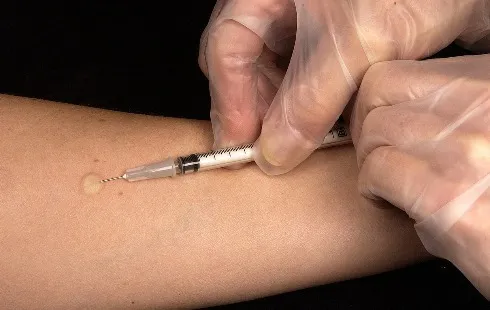
Poker Slang That Will Have You Talking Like a Pro
Section: Arts
The Severe Acute Respiratory Syndrome Coronavirus 2 (SARS-CoV-2) emerged in December 2019 in Wuhan, China, leading to a global upheaval in daily life. The virus, which causes the disease known as COVID-19, quickly spread worldwide, with Germany recording its first case at the end of January 2020.
In the early days of the pandemic, rapid responses were essential. Key developments included the sequencing of the virus completed in January 2020, the swift creation of diagnostic tests led by researchers at Berlin's Charité, the identification of transmission routes (via droplets and aerosols) confirmed by spring 2020, and the rollout of vaccines, with the first EU approvals granted in December 2020.
Despite these efforts, the virus significantly impacted vulnerable populations, particularly the elderly and those with pre-existing conditions. According to the World Health Organization (WHO), approximately 7.1 million people worldwide had succumbed to COVID-19 as of February 19, 2025.
The timeline of the pandemic in Germany included key events such as:
This pandemic was unprecedented for many living today and highlighted the need for preparedness in the face of future pandemics. The lessons learned are crucial for optimizing responses to emerging health threats, as SARS-CoV-2 continues to circulate.
Initially, no human immune system recognized the new virus, necessitating separation to curb transmission. The pandemic provided an opportunity for scientists to study immune responses in real-time, revealing that the innate immune system plays a significant role in controlling viral spread.
Research also underscored the importance of T cells in the immune response, shifting focus from antibodies alone to the protective role of T cells. Studies demonstrated that while antibody levels might wane over time, T cells could offer lasting immunity.
Long COVID, characterized by persistent symptoms such as fatigue and cognitive issues, emerged as a significant consequence of COVID-19. Ongoing research is needed to understand the mechanisms behind these post-viral conditions and to develop effective prevention and treatment strategies.
The rapid development of vaccines was another critical outcome of the pandemic. These vaccines, initially distributed to high-risk groups, became available much quicker than previously anticipated, thanks to advanced technologies and prior research on coronaviruses.
While vaccines effectively reduced severe illness and hospitalization, they did not entirely prevent infections. Future vaccine development efforts may focus on creating localized immune responses at entry points of infection.
Non-pharmaceutical interventions (NPIs) such as social distancing, masking, and testing were vital in controlling the virus's spread before vaccines became widely available. Evaluating the effectiveness of these measures is essential for future pandemic preparedness.
Enhanced surveillance and monitoring systems established during the pandemic, including wastewater testing and syndromic surveillance, have improved our ability to track emerging infectious diseases. These systems could be invaluable in responding to future health crises.
Effective communication of scientific findings to the public was also a major takeaway from the pandemic experience. Ensuring the population understands the seriousness of health measures and the reasoning behind them is crucial for compliance and public health outcomes.

Section: Arts

Section: Arts

Section: Health

Section: Health

Section: News

Section: Arts

Section: News

Section: Travel

Section: News

Section: News

Health Insurance in Germany is compulsory and sometimes complicated, not to mention expensive. As an expat, you are required to navigate this landscape within weeks of arriving, so check our FAQ on PKV. For our guide on resources and access to agents who can give you a competitive quote, try our PKV Cost comparison tool.

Germany is famous for its medical expertise and extensive number of hospitals and clinics. See this comprehensive directory of hospitals and clinics across the country, complete with links to their websites, addresses, contact info, and specializations/services.

The exhibition commemorates the 300th birthday of Kurfürst Karl Theodor, who became the ruler of Bavaria after the last altbayerische Wittelsbacher passed away in late 1777. Despite his significant contributions to economic modernization, social improvements, and cultural initiatives like the...
No comments yet. Be the first to comment!